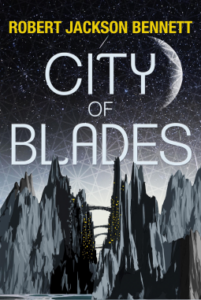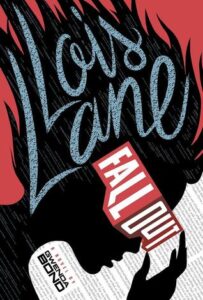 City of Blades, Robert Jackson Bennett
City of Blades, Robert Jackson Bennett
I originally received this to review, and then a friend brought me a US edition of the paperback so I had matching ones. Yay! Don’t be fooled by the UK cover on this post; it’s just because that’s the version I had first. So if you read my recent review of City of Stairs, you’re probably not surprised at all to find that I loved City of Blades. The writing remains incredibly strong, and instead of resting on his laurels and giving us more of Shara, Bennett takes a supporting character from the first book and takes us to a different part of the world. We do get recurring characters — quite a bit of Sigrud, a few glimpses of Shara — and the Battle of Bulikov has a profound effect on the plot, but Turyin Mulaghesh really takes the stage.
Which is just fine with me, since she’s an amazing character. City of Blades gives us a lot more depth on that character: what made her the way she is, what drives her, what she fears, why she serves and when she’ll rebel. Her interplay with Sigrud and Shara is fun because it gives us a new perspective on them, too, and her relationship with new characters like Signe and Biswal allows us instantly to care (though not necessarily feel favourably toward them!).
And the plot, well. Again, Divinities are a key issue, which should surprise no one — and dead is not always quite dead when there are still miracles around. The mystery aspect revolves around a Divinity we haven’t met yet, but Mulaghesh’s experiences in Bulikov (and Sigrud’s knowledge of the Divine) is instrumental in figuring things out.
I don’t think I can actually say more without spoilers, so suffice it to say that City of Blades is just as awesome as City of Stairs, and a bit more heartrending into the bargain.




 Camelot’s Blood, Sarah Zettel
Camelot’s Blood, Sarah Zettel



